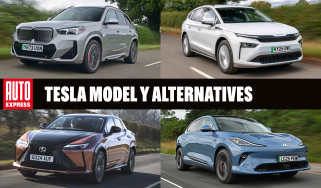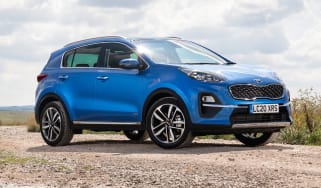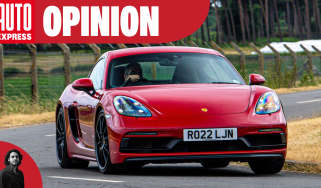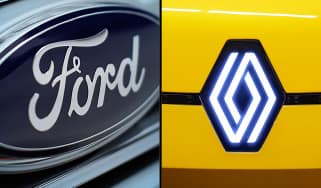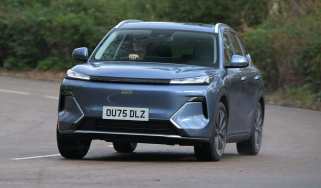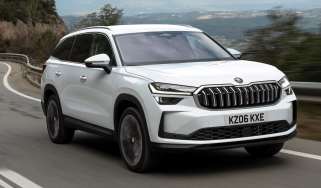Should I buy an electric car? The pros and cons of owning an EV today
Wondering if it’s worth buying an electric car? Here’s everything you need to know
The UK is in the process of a full-blown electric vehicle (EV) revolution. Improvements in range, lower prices and the continued expansion of the charging network mean that the process of buying and owning an electric car continues to get easier.
Of course, there are still lots of pros and cons to consider when deciding if it’s worth buying an electric car, but our guide is here to help.
Electric cars still make up a growing percentage of all cars sold in the UK, and due to tightening legislation the balance is continuing to shift in favour of EVs.
The 2030 ban on the sale of new petrol and diesel cars might have already gained a lot of headlines but in practice it may not even be particularly significant for car buyers. In the UK, the ZEV mandate dictates that 80 per cent of new cars sold will be zero-emission by 2030. This means manufacturers are under significant pressure to sell more EVs than ever before, which in turn means there are great deals and offers to be found.
While prices for EVs are often higher than those for their internal combustion counterparts, a number of models are now starting to turn the tide. Cars like the Renault 5, Fiat Grande Panda and Citroen e-C3 all offer useable battery range and plenty of appeal for under £25,000. Those who don’t mind a back-to-basics kind of car are also catered for by the likes of the Dacia Spring and Leapmotor T03, both of which come in at under £17,000.
Find the best EV prices right now! Our Find a Car service is filled with great deals on new and used electric cars…
This downward pricing trend is set to continue, too, as economies of scale and manufacturers’ keenness to sell more zero-emissions vehicles mean more affordable fully electric cars are available than ever before. The continuing influx of Chinese brands to the UK’s shores has been a serious wake-up call for brands located closer to home, too.
Figuring out if it’s worth buying an electric car is a daunting task. There are lots of pros and cons to consider, but don’t worry: we're here to help you make the right decision.
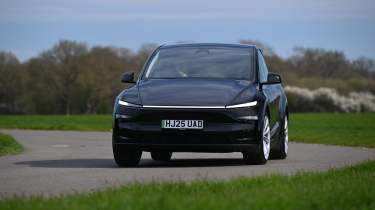
What are the pros and cons of owning an electric car?
As with any type of vehicle, there are pros and cons to owning a fully electric car. While this will vary depending on your personal requirements, tastes and opinions, we’ve rounded up the key points that are likely to contribute towards making or breaking your decision to purchase an EV.
EV ownership pros
- Zero emissions
- Buying incentives (e.g. Electric Car Grant)
- Low running costs
- Generally increased refinement and comfort
- Brisk Acceleration
EV ownership cons
- Limited charging options in some areas
- EV charging is much slower than filling with fuel
- Battery range may prove restrictive
- Many EVs are more costly to buy than combustion cars
- Some electric cars are arguably less fun to drive
- EV depreciation can be significant
Reasons to buy an electric car: the benefits and considerations
Electric cars bring tangible benefits over petrol and diesel models, and here are the key ones to consider from cost savings to the driving experience.
Zero emissions
The big attraction of an EV is the fact you are doing mile after mile of emissions-free driving. When you're on the move, the EV system is a 'closed loop', meaning that the battery drives the electric motor and powers all of the on-board electrics, but doesn't produce any waste material.
There are arguments that identify the production of electric car batteries as environmentally damaging, and it is true that EVs often emit more CO2 in production than petrol or diesel cars.
However, according to a research briefing published by the House of Commons Library in 2023, citing 2020 data from Bloomberg New Energy Finance, the ‘lifecycle CO2 emissions’ of a medium-sized electric car – including production and 250,000km of use – are between 18 and 87 per cent lower than for an equivalent internal combustion car. The gap in total emissions is smallest in China where many EVs and batteries are produced locally, but much larger in the UK.
The only time an EV pollutes other than when it is finally scrapped – a process that increasingly sees batteries at least partially recycled or repurposed – is when it's being charged. Even then, emissions are traced back through the National Grid to the power source. If that happens to be a renewable source (solar panels/wind farm/wave power), then you could genuinely be contributing to lower harmful emissions into the environment. Even if power is sourced from nuclear, gas or coal sources, the levels of harmful byproducts produced when charging your car will be a mere fraction of the power station's overall pollution output.
Buying incentives
In 2025, the UK Government introduced its latest Electric Car Grant, which provides a £3,750 discount on EVs costing less than £37,000. You can read our in-depth Electric Car Grant guide here…
Although not every EV qualifies for this grant, a number of brands have responded by offering their own discounts and incentives. As well as saving money on the purchase price, it’s also common to see carmakers offering additional goodies such as a free home wallbox charger or a certain duration of free public charging.
Low running costs
Even taking into account higher energy prices, day-to-day electric car running costs are generally lower than those for an equivalent petrol or diesel car.
It's common practice to charge an EV overnight so it’s ready for use the following day, so EV owners with flexible tariffs can use electricity at a lower unit rate than they would be during the day. Some energy providers offer EV-specific tariffs to help you maximise these savings.
Those who rely more on the public charging network will pay more – especially when using the fastest chargers – but some local authorities offer discounted charging via their own networks.
According to research published by the Energy and Climate Intelligence Unit based on some of the most popular EVs and their owners’ charging habits, the average electric car is around four times cheaper to fuel than its petrol equivalent.
Tax benefits
As of April 2025, electric cars no longer qualify for zero Vehicle Excise Duty road tax. However, company car drivers can still reap some significant savings on Benefit-in-Kind tax.
Electric cars carry a notable low 3 per cent BiK tax rate, and while this rose slightly from 2 per cent in 2025, it can still bring huge savings for company car drivers. This has been a big driver of electric car sales in recent years.
It’s also worth remembering that pure EVs are exempt from emissions-based charging such as London’s Ultra Low Emission Zone (ULEZ).
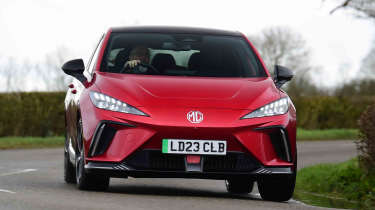
Comfort
As electric motors only make a faint whirring noise at most, cabin comfort is a major EV forte. You only really have to contend with tyre, wind and road noise on the move, and if you're around town all three of these will be pretty minimal. In fact, EVs are so quiet that manufacturers are required to fit sound generators to ensure pedestrian safety.
Many EVs are designed to be comfortable around town, so while the suspension needs to carry the weight of the batteries, there's a degree of comfort to the ride that complements the lack of noise.
Acceleration
You don’t need a Tesla or Porsche to enjoy the benefits of electric motor performance; thanks to the instant torque delivery of an electric motor, most EVs feel surprisingly quick away from the lights. Simply press the accelerator, and many of these cars will immediately sprint forward on a wave of torque.
Reasons not to buy an electric car: drawbacks and considerations
Electric cars aren’t for everyone. They’re becoming more suitable for more people all the time but it’s important to go into any EV purchase with your eyes open…
Charging
Getting used to electric car charging rather than filling your car with fuel is perhaps the biggest change that EV ownership brings. An adjustment to the traditional routine of car ownership is required and that can take some getting used to.
Pretty much every EV on sale comes with a three-pin domestic plug so that you can charge via the mains but this is intended as a last-resort solution given the slow rate of charge. A smaller battery may charge overnight using this cable, but larger batteries will take much longer.
An AC charging cable is also usually standard, and this is primarily intended for use on slower public chargers or a home wallbox. Wallboxes are the best solution for those with off-street parking (and suitable home electrics). Because these chargers are faster than a three-pin plug, you can often simply park up overnight, plug in and return to a fully charged car in the morning.
However, if you park on the street, charging becomes more of an issue. Some streets in larger cities have chargers in lampposts but this is still quite rare. For most people without a driveway or garage, some local research will be required to figure out how best to stay on top of charging without resorting to expensive rapid charging.
Car makers are doing their bit to help with EV charging. Tesla has a network of Supercharger stations across the UK that offers fast charging both for Tesla and, non-Tesla models. Elsewhere, Nissan and Renault EV dealerships offer fast-charging for EV owners on-site, although that only really helps if you happen to be near one of these sites, which are usually on industrial estates on the outskirts of major cities.
The other option is to sign up with a charging provider such as Pod Point, Ionity or Octopus Energy. For a monthly fee, this subscription will give you access to charging points and dedicated parking bays – both on-street and in larger car parks – across the UK. Contactless payments are also widely available on all the major networks, so you can pay as you go if you prefer. Some networks also use an Oyster-style pre-loading system.
The cheapest option for many will be to sign up for membership of a charging network operated by local authorities. In Scotland, for example, the Charge Place Scotland network operates in a similar way to the private equivalent but with more reasonable rates across its network of slow- and fast chargers.
Charging time
Drivers have become used to the habit of simply filling a car up with fuel as and when needed. However, you can't apply the same regime to an EV. If you do, you'll be suffering from extra-long journeys as you stop to charge your EV up over a prolonged period. In this regard it's more the perception of EVs that needs to change, rather than the cars themselves. Remember that if you don’t do many miles and have an EV with a good range, charging could be a weekly event rather than something you have to do every day.
Owning an EV involves some forward planning, especially on longer trips; and as long as you keep your EV plugged in every time you're parked, especially overnight, it should have more than enough battery life to get you to your destination on all but the very longest journeys.
On a long-distance trip, a charging stop may well be required – but don’t forget you may well have needed to stop anyway. With many of the latest EVs and chargers, a 30-minute top-up is often all that’s required.
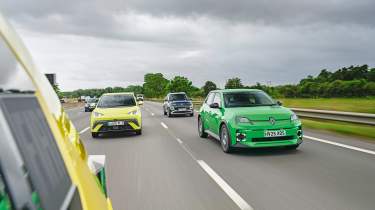
Battery range
Another limiting factor that will stop some from buying an electric car is range anxiety – the fear that you either won't get to your destination without having to charge, or that you won't be able to charge when you get there.
Constantly improving EV technology means that a workable range of around 150 to 300 miles is typical, and this is improving as these cars continue to develop. It’s worth not getting too hung-up on range, however: a larger battery may go further but will take longer to charge and – especially in the biggest electric cars – it’ll also be heavier and therefore less efficient. You may be better off with a smaller, cheaper battery that charges in less time and will help the car get more miles per kilowatt hour. In other words, efficiency is often more important in the real world than claimed battery range.
In reality, if you're able to plug an EV in regularly then range anxiety shouldn't be an issue. The average driving commute in the UK is around 10-15 miles, so any EV is more than capable of covering the journey to work and back several times without needing to be charged up.
Purchase price
Electric cars are still relatively expensive, carrying a premium over an equivalently sized petrol or diesel powered car. However, the gap continues to narrow and the influx of affordable models means EVs are now attainable for many more people.
The issue is less pronounced if you are a fleet user, but it’s worth doing the sums if you’re a private buyer looking to buy a brand new electric car instead of a petrol or diesel car. You may have to do quite a few miles to make the extra cost of an electric car back in fuel savings.
EV depreciation
Perhaps a larger issue than outright price is depreciation, which has been affecting a large number of EVs much more than most petrol or diesel cars. This can be attributed in part to the speed of development of EV technology, with newer, cheaper, more efficient and longer-range models arriving every year.
Concern about EV battery life – a similar phenomenon to that encountered with second-hand smartphones but on a much larger scale – is also a factor here. Electric car batteries will inevitably lose capacity as they get older, with certain charging habits and use-cases causing faster degradation than others. Replacement units are hugely expensive, but modern batteries should last somewhere between 10 and 20 years - about as long as an internal combustion engine.
Depreciation is bad news for those buying a brand new electric car with their own money but not really a concern for company car users. It does mean there are lots of deals to be had on the nearly-new and used markets, however. We certainly wouldn’t be worried about taking the plunge on an ex-fleet electric car with low miles if someone else had taken the sizeable initial depreciation hit.
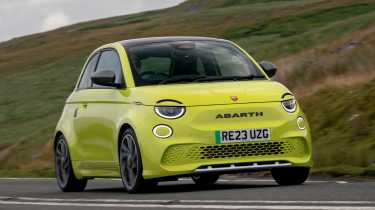
Driving fun
There's no escaping that the heavy batteries of an EV do dull the driving experience in a number of cases. In addition, the lack of engine noise from the electric motor takes away some of the driving thrill for people who like to get involved in what they're driving. In addition, the direct drive and lack of gearbox also detracts from the driving fun, so some enthusiasts still feel rather numb at the thought of EV driving.
The good news is that many manufacturers have listened to criticism from driving enthusiasts and have started to introduce some genuinely sporty electric cars, with highlights including the Abarth 500e, Alpine A290 and Hyundai Ioniq 5 N.
If you’re ready to make the switch, you can find plenty of great new and used electric car deals via our Find a Car service…
Top electric car deals
Your electric car questions answered
- Electric car FAQ
- Should I buy an electric car?
- What’s the best way to buy an electric car?
- Is a hybrid, plug-in hybrid or electric car right for me?
- Should I buy a used electric car?
- Can i get a plug-in car grant?
- How is electric car range calculated?
- How much do electric cars cost to charge?
- How much do electric cars cost to run?
- How long do electric car batteries last?
- What happens to old electric car batteries?
- Should I get a heat pump on my electric car?
- What are fast charging and rapid charging?
- Should I get a home electric car charger?
- Can I tow with an electric car?
- Is wireless electric car charging the future?
- What’s the history of the electric car?






